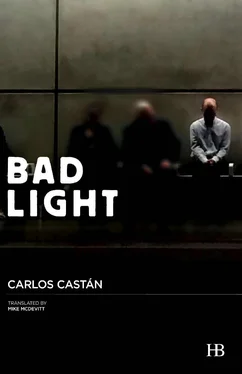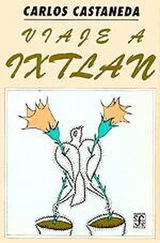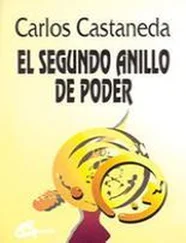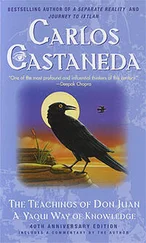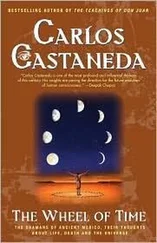Carlos Castán - Bad Light
Здесь есть возможность читать онлайн «Carlos Castán - Bad Light» весь текст электронной книги совершенно бесплатно (целиком полную версию без сокращений). В некоторых случаях можно слушать аудио, скачать через торрент в формате fb2 и присутствует краткое содержание. Год выпуска: 2016, Издательство: Hispabooks, Жанр: Современная проза, на английском языке. Описание произведения, (предисловие) а так же отзывы посетителей доступны на портале библиотеки ЛибКат.
- Название:Bad Light
- Автор:
- Издательство:Hispabooks
- Жанр:
- Год:2016
- ISBN:нет данных
- Рейтинг книги:5 / 5. Голосов: 1
-
Избранное:Добавить в избранное
- Отзывы:
-
Ваша оценка:
- 100
- 1
- 2
- 3
- 4
- 5
Bad Light: краткое содержание, описание и аннотация
Предлагаем к чтению аннотацию, описание, краткое содержание или предисловие (зависит от того, что написал сам автор книги «Bad Light»). Если вы не нашли необходимую информацию о книге — напишите в комментариях, мы постараемся отыскать её.
Carlos Castán
Bad Light
Bad Light — читать онлайн бесплатно полную книгу (весь текст) целиком
Ниже представлен текст книги, разбитый по страницам. Система сохранения места последней прочитанной страницы, позволяет с удобством читать онлайн бесплатно книгу «Bad Light», без необходимости каждый раз заново искать на чём Вы остановились. Поставьте закладку, и сможете в любой момент перейти на страницу, на которой закончили чтение.
Интервал:
Закладка:
Carlos Castán
Bad Light
For V.
“I could just remember how my father used to say that the reason for living was to get ready to stay dead a long time.”
W. FAULKNER, As I Lay Dying“We were dead and we could breathe.”
PAUL CELAN, “Memory of France”, Sand from the Urns“To explain with words from this world that a ship parted from me with me on board.”
ALEJANDRA PIZARNIK, Tree of Diana, 13I. THE MONSTER
“The monster was made by fear.”
WILLIAM LINDSAY GRESHAM, Nightmare Alley1 (dead behind these eyes)
The two of us had recently moved to Zaragoza, in the space of a few short months, Jacobo first, then me, both newly separated, still bearing the imprint of a wedding band on our fingers, that ring of slightly paler flesh that serves as a sort of badge, announcing one’s newly unveiled, somewhat shameful solitude to the world. I guess we were each on the run in our own way. He, intent on starting afresh after his early retirement, and I perhaps somehow following in his footsteps, not so much out of relief at being able to call on his company from time to time as having been seduced, I believe, by the powerful lure that beginnings have always held for me, the blank page, starting over anew, any situation that can in my mind’s eye conjure up ships burning in distant bays or homes left behind without prior warning, just like that, without turning the key in the lock, leaving on the table the dirty dishes from the evening meal the night before. People, say, who are released from jail or discharged at last from the hospital after a harrowing detox and who, with a handful of belongings, rent out a room in some unknown place, far from everything that happened before, placing their toothbrush in a glass on the sink, tossing a couple of changes of clothing into the drawers, and perhaps also a revolver or a photograph of a woman in a picture frame that can barely stand upright, before opening the window to air out the room and let the show commence. Then they see the neon lights on the building across the street and the hustle and bustle of a hostile neighborhood in which they’ll gradually have to get their bearings. An official secondment at the right time or the taking up of a new administrative post can offer something along similar lines, the feeling of being alive against all odds and of the blank page still smelling of the printing press, awaiting events and ink. And all this despite the weariness and the old chains they will no doubt still have to drag behind them, shackled to their feet.
When Jacobo told me the details of his move and the opening measures of what appeared to all intents and purposes to be a proper new life, I couldn’t help but feel, if we’re calling a spade a spade, a twinge of envy, for one tends, if only intermittently, to feel, out of an instinct for survival, that there is time yet to endow our remaining days with some sort of meaning and to build a new tower in the middle of nowhere so as to carry on living — a longing, in short, for a change of scene, for new faces, for the simple possibility of losing my way down streets that lead who knows quite where or grabbing a coffee in bars in which I had never before set foot, a city, when all is said and done, with its mean streets and movie theaters, its record stores, its bookshops, its nights so similar to real nights. Everything as if to scale, like a toy, but real at the end of the day and waiting around the next corner. In the small town we first called home (for so many years, and how long each and every one of them felt), the lovely Provincia, it’s as if the fog of tedium — which of its own accord, as a matter of course, already cloaked the evenings after a certain hour, steeping our bones in the dampness of a life already lived, a festering, repeated sorrow, like a strange morning dew, a sort of backward sweat that penetrated, from the outside in, the pores of every wall and of all that had gone before and was to come, leaving them drenched in emptiness and past and an ancient weariness that condemned you to walk half-slouched, to read listlessly, to endless naps so as not to have to see the pitiful death throes of time beneath the bad light that as soon took possession of the streets as it did the insides of homes and bars — had slowly been thickening.
We had met years before, Jacobo and I. For quite some time, we would see one another almost every day, the standard, more or less routine after-work beer, lingering a little longer with each passing evening, sometimes until the early hours. That getting to know one another started out as something ecstatic and life affirming. There were not enough days in the week to see through all the plans we hatched, or hours in the night to list them. Such affinities are above all else a matter of focus, a way of looking at the world; all of a sudden you find someone who not only places the source of light in the exact same spot as you, they also train it in precisely the direction you were looking. Many people decide to take their leave from this world one way or another, but it is not often that two people do so at the same time and through the same door, seeing everything from then on from a very distant, identical angle. When such a coincidence does arise, it’s possible to scorn and admire in unison all that the world around us sets before our eyes, and to laugh at things, above all things held semi-sacred by the rest of humanity, untouchable subjects, delicate matters that cease to be delicate in the wee small hours, as if by magic after a certain time of night, amid the smoke of bars where customers stagger in and out under the weight of their histories, shadows in raincoats who drift across our field of vision and order drinks they down alone while the music devours them, characters in a theater too small to be taken all that seriously. Above all else, Jacobo liked to talk of women, both his more remote girlfriends (too many for my battered memory to retain the circumstances and names of with the precision he would have liked from his conversation partner, so as not to have to go over the same ground again and again) and his more recent extramarital conquests. His chatter could slide into an alarming muddle of dreamy girls and lion-like women, of more or less true exploits and others that amounted to little more than intentions or plans not fully thought through, a veritable verbal maze of flesh and fantasy in which I quickly got lost amidst all the many female names being mentioned, all the letters being sent back and forth, all the panties being hoisted up and yanked down. Never before, not even in movies, had women struck me as being as desirable as when recounted by Jacobo, nor amorous exploits as unsettling as when told in his words. His lips glistened as he recalled bedrooms, and skirts raised in the most precarious of hiding places, bare feet doing their sweet work beneath the most formal dining tables, some tales from way back, other from four days previously, surrenders and fits of madness, candor and fury, his arms catching the faintings of what seemed like ladies of myth suddenly transformed, as if by dint of a magical kiss, into mere broads, disheveled and stunning, panting and filthy. At first I feared that, as was only fair, he would expect similar confessions on my part, with the same degree of salaciousness and detail, but he soon realized I was far from comfortable discussing these matters, even at such times as those, when glasses are emptied quickly and I know the whole world is sleeping.
In contrast to that sort of never-ending revelry, the flipside of the brandy and the music, was what had from an early age been his life’s obsession: the horror of the German concentration camps and all their offshoots.
Читать дальшеИнтервал:
Закладка:
Похожие книги на «Bad Light»
Представляем Вашему вниманию похожие книги на «Bad Light» списком для выбора. Мы отобрали схожую по названию и смыслу литературу в надежде предоставить читателям больше вариантов отыскать новые, интересные, ещё непрочитанные произведения.
Обсуждение, отзывы о книге «Bad Light» и просто собственные мнения читателей. Оставьте ваши комментарии, напишите, что Вы думаете о произведении, его смысле или главных героях. Укажите что конкретно понравилось, а что нет, и почему Вы так считаете.
